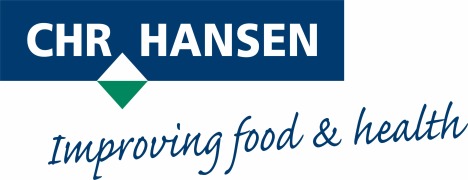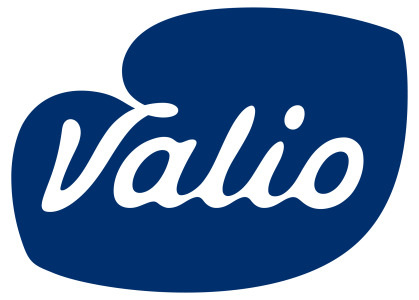News
Exploring different approaches to lactose-free dairy
17 May 2020Demand for lactose-free dairy is on the rise around the world, and manufacturers have several options available to them to tap into this growing trend.
Lactose intolerance is highly prevalent in Asian and African countries, where up to 95% of the population is affected, compared to fewer than 10% of Northern Europeans. Perhaps counterintuitively, demand for lactose-free dairy products tends to be highest in regions with the lowest prevalence of lactose intolerance, as dairy features more strongly in traditional dietary patterns – and lactose-free foods and drinks increasingly are perceived as beneficial for digestive health. However, as dairy demand rises in other parts of the world, so will demand for lactose-free varieties, presenting a major opportunity for dairy companies, as well as ingredient suppliers.

Even during the Covid-19 pandemic – as demand for standard dairy products has dropped and many producers have been left with surplus milk – global demand for lactose-free dairy has risen. In 2019, manufacturers of lactose-free milk and suppliers of lactase, the enzyme used to produce it, rose to record levels.
Using lactase remains the most common way to remove lactose from dairy products, and several major suppliers, including DSM, Novozymes and Chr Hansen, provide enzymes so manufacturers can create lactose-free dairy products and ingredients. Most recently, DuPont introduced a lactase enzyme optimised for faster processing times under different thermal conditions in both EMEA and North America.
However, other approaches are available, each with its own benefits and drawbacks for various product categories. Some companies supply lactose-free ingredients directly. The Finnish dairy giant Valio, for example, has a line of lactose-free milk powders for use in dairy foods and drinks, as well as in confectionery, baked goods and ready meals.
The enzymatic approach is simple, effective and cheap, and works by splitting the milk sugar into its constituent sugars, galactose and glucose. These individual sugars are sweeter than lactose, meaning that lactase has found a new lease of life in reduced sugar flavoured dairy products, as manufacturers can use it to reduce how much sugar they add.
But sweeter flavour is not always desirable, and GEA is among those suppliers offering alternative approaches. One option is to remove some of the lactose from the milk before adding the lactase, resulting in a sweetness profile closer to that of ordinary milk. The milk is skimmed and pasteurised before undergoing a filtration process to remove part of the lactose. Another approach is to use a filtration and separation process to split the milk into water, fat, protein, lactose, vitamins and minerals, before recombining it in the required proportions, leaving out the lactose.
Apart from lactose intolerance, demand for free-from foods and drinks is on the rise in general, including for their perceived digestive health benefits. Valio has suggested manufacturers could market lactose-free products as ‘easy on the stomach’, for example, to capitalise on this perception. However they are marketed, sales of lactose-free dairy have outpaced dairy sales in general in Western Europe, where they have grown an average of 6% a year from 2013 to 2017, according to Euromonitor International, while standard dairy sales remained flat.
Related news

Retail landscape lacks nutritious and affordable food, says ATNi
30 Dec 2025
A rapid increase in modern food retail has given retailers growing influence over consumer diets, according to global non-profit ATNi’s latest assessment.
Read more
Debate over ban on ‘meaty’ names for plant-based products reaches stalemate
26 Dec 2025
The debate over a ban on plant-based products using “meaty” terms has reached a stalemate, leaving manufacturers in limbo and still facing overhauls to their marketing and packaging.
Read more
Innovation promise in 'maturing' plant-based dairy alternatives market
8 Dec 2025
Plant-based dairy is a maturing market that still faces significant hurdles around taste, functionality, nutrition, and price, but industry is innovating fast, according to experts speaking at Fi Europe.
Read more
Celebrating the winners of the Fi Europe Innovation Awards 2025
3 Dec 2025
Food industry stakeholders celebrated as the winners of the Fi Europe Innovation Awards were announced at a ceremony in Paris.
Read more
Big appetite for M&A between European and US food and drink companies
3 Dec 2025
Persistent tariffs on EU food and beverage exports have helped drive record levels of M&A activity between European and US companies this year, according to analysis by ING.
Read more
Non-UPF Program extends certification scheme to entire food industry
30 Nov 2025
The Non-UPF Program has extended its certification scheme to the wider food sector, championing a move towards healthier consumption habits.
Read more
Empowering innovation in fortification and colouration
13 Nov 2025
Divi’s Nutraceuticals offers a large portfolio of innovative, high-quality ingredients for foods, beverages, and supplements, with bespoke solutions and expert support for product success.
Read more
Danone highlights digestive health as potential ‘tipping point’ for food industry
13 Nov 2025
Danone is betting on a food industry “tipping point” that will bloat the market for healthy products, particularly those related to gut health.
Read more
Standing Ovation and Bel scale up casein production from dairy co-products
11 Nov 2025
Foodtech company Standing Ovation has partnered with cheese specialist Bel Group to manufacture dairy serums for industrial-scale casein production via precision fermentation.
Read more
New UPF standard hoped to offer consumers ‘coherence and clarity’
10 Nov 2025
Ingredients companies are being urged to enter “a new era of partnership and innovation” following the launch of the industry’s first non-UPF verification scheme.
Read more



